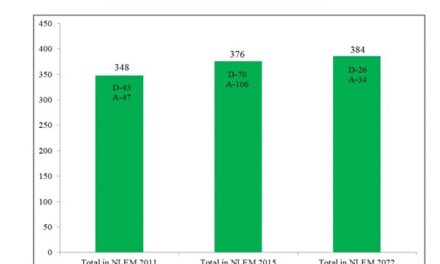A comprehensive assessment of smoking cessation drugs for individuals with severe tobacco dependence has revealed that two out of four currently approved medications show clear benefits. According to the Institute for Quality and Efficiency in Health Care (IQWiG), nicotine and varenicline were found to significantly increase the likelihood of smoking cessation after six months of treatment, even when combined with non-drug interventions.
The findings are part of a benefit assessment commissioned by the Federal Joint Committee (G-BA) as part of Germany’s statutory health insurance (SHI) program. Smokers with severe dependence are entitled to one-time drug therapy as part of evidence-based treatment programs covered by SHI.
Proven Effectiveness of Nicotine and Varenicline
The study indicates that smokers who used nicotine or varenicline as part of their cessation plan were substantially more likely to be smoke-free after six months compared to those who received no drug therapy. While these medications did come with side effects such as headaches, nausea, sleep disturbances, and skin irritation, the benefits of quitting smoking outweighed the risks of these adverse effects.
Notably, the severity of tobacco dependence did not impact the effectiveness of nicotine or varenicline. This means that even individuals with severe tobacco dependence saw similar success rates in quitting smoking as those with less severe forms of addiction.
Varenicline, a medication known for its role in smoking cessation, was particularly effective, with study participants more likely to remain smoke-free not only after six months but also at twelve months. While neuropsychiatric side effects were noted—such as irritability, abnormal dreams, and fatigue—these did not diminish the clear advantages of varenicline for long-term smoking cessation.
Similarly, nicotine as a smoking cessation aid showed positive results, though the data for long-term abstinence was less conclusive than for varenicline. The side effects associated with nicotine included irritation of the mouth and throat, as well as headaches and nausea.
Unclear Benefits for Bupropion and Cytisine
In contrast, no clear benefits could be determined for bupropion and cytisine, two other smoking cessation drugs, due to insufficient data. IQWiG repeatedly requested further information from the manufacturers but did not receive the necessary data to conduct subgroup analyses. As a result, the potential benefits for smokers with severe tobacco dependence remain unclear for these drugs.
Combination therapies, including bupropion with nicotine or varenicline, were also studied, but due to the lack of data on bupropion, conclusions could not be drawn about their efficacy.
Legal Framework and Public Debate
The assessment was carried out in accordance with the German Act on the Further Development of Health Care (GVWG), which mandates that smokers with severe tobacco dependence receive drug therapy for smoking cessation under SHI. However, the law’s definition of “severe tobacco dependence” was debated during the study’s public comment period, with some arguing that the criteria should be more inclusive. Others pointed out that similar conditions, such as alcohol dependence, are treated without differentiating between varying levels of severity.
Despite these debates, the law and IQWiG’s mandate specify that the benefit assessment must focus on smokers classified as severely dependent, according to the Fagerström Test for Nicotine Dependence (FTND) or similar criteria.
The G-BA, which makes the final decisions on which smoking cessation drugs will be reimbursed under SHI, will now review the IQWiG findings to determine which treatments will be covered for those with severe tobacco dependence.
Conclusion
This new study underscores the effectiveness of nicotine and varenicline in helping smokers with severe dependence quit, despite the side effects associated with these drugs. However, the lack of evidence for bupropion and cytisine highlights the need for further research to fully understand the range of effective treatments for tobacco dependence. As Germany continues to refine its smoking cessation programs, these findings will play a crucial role in shaping future healthcare policies and drug reimbursement decisions.











